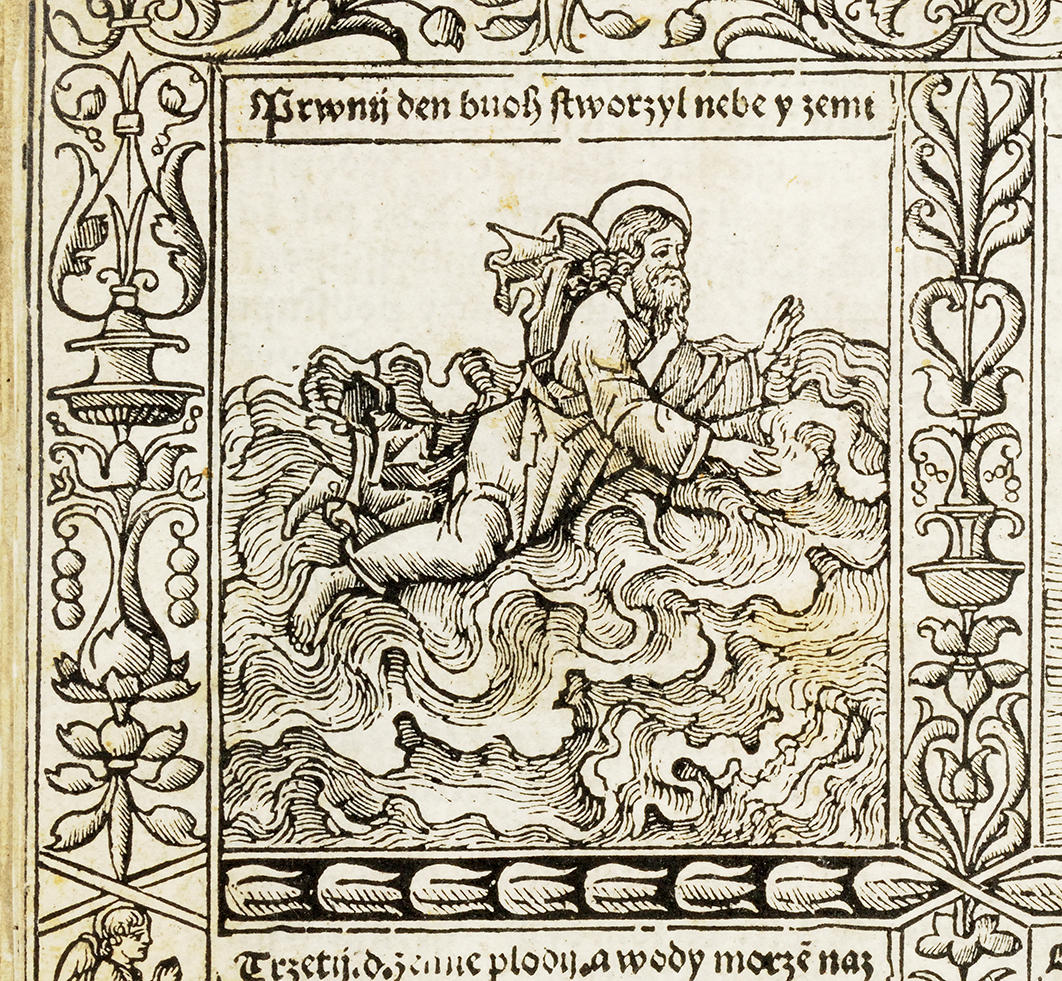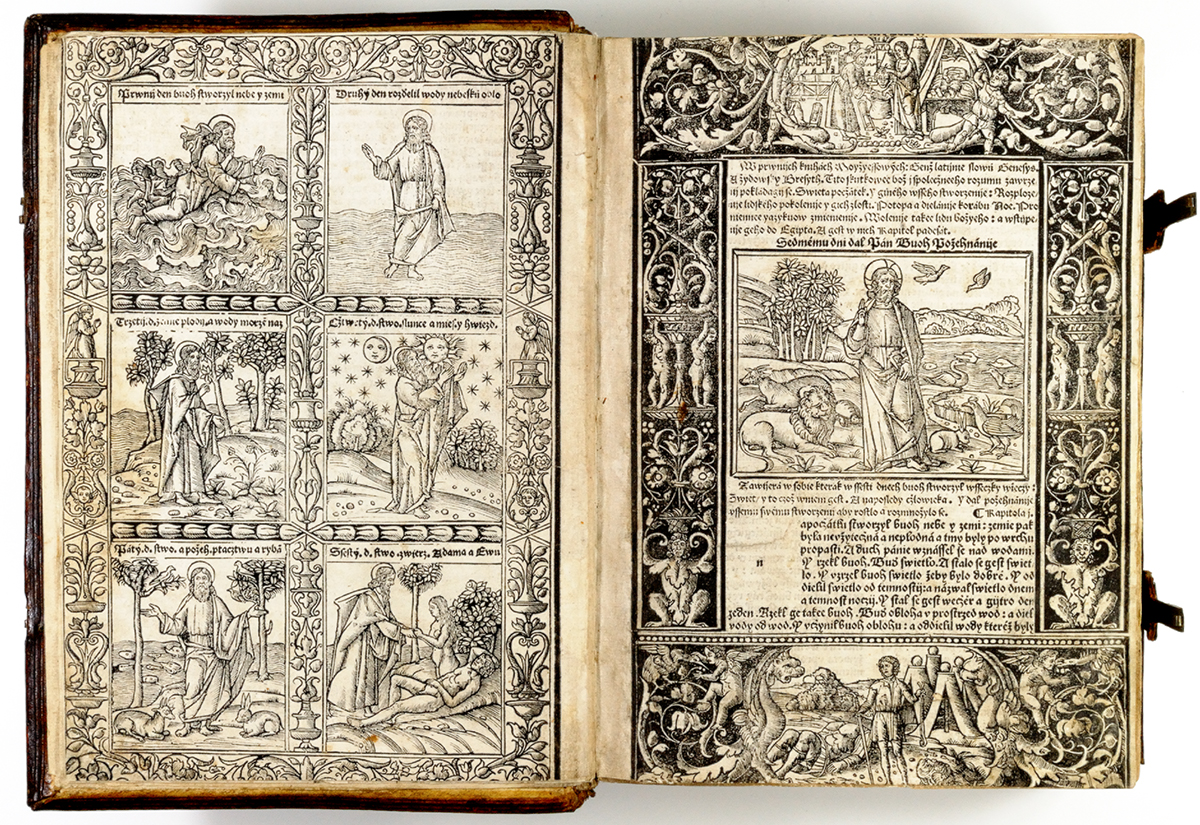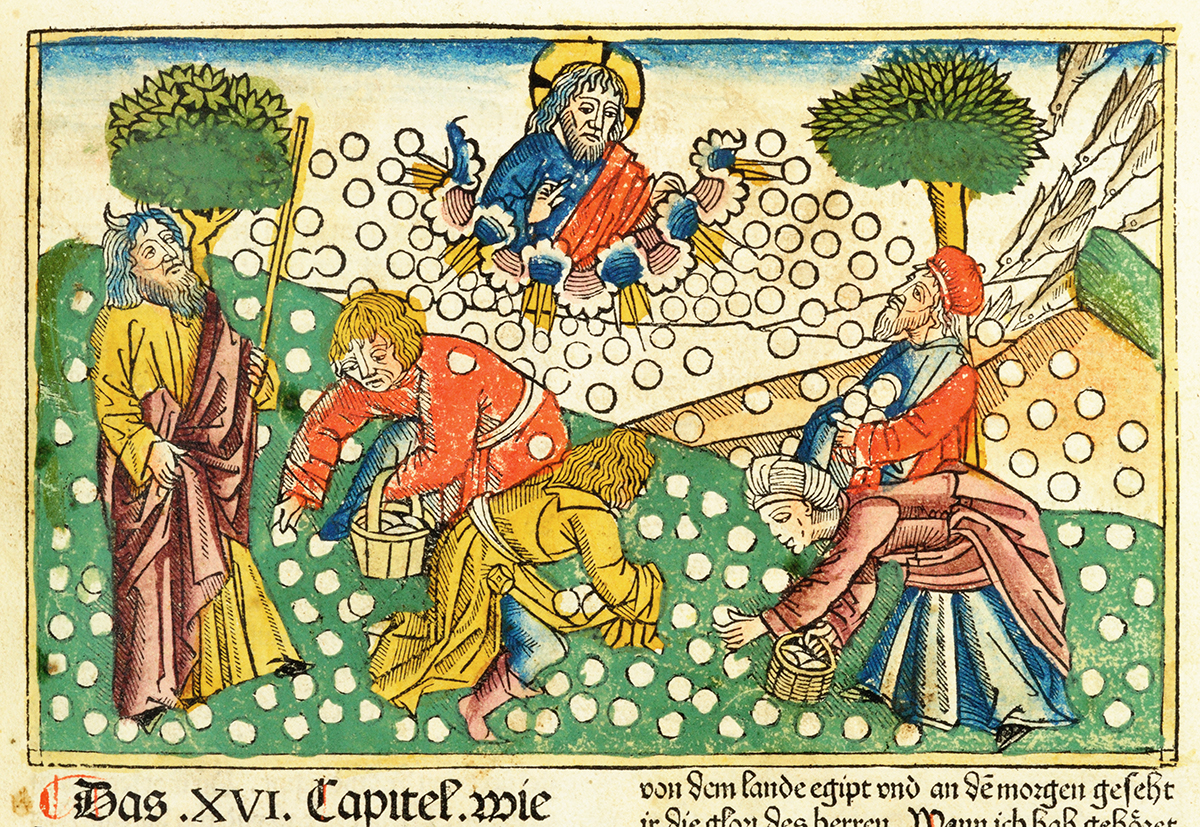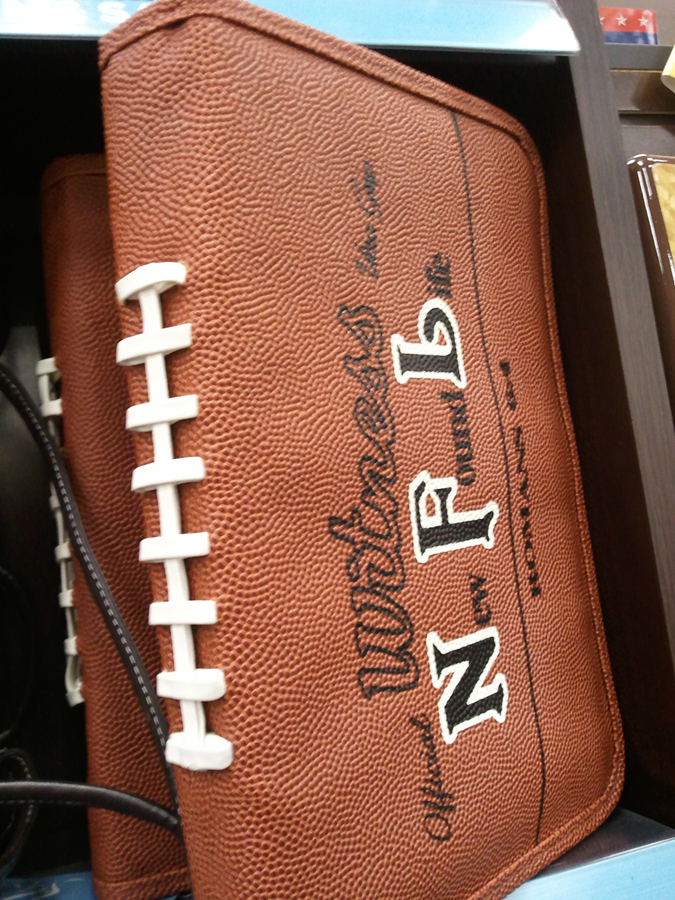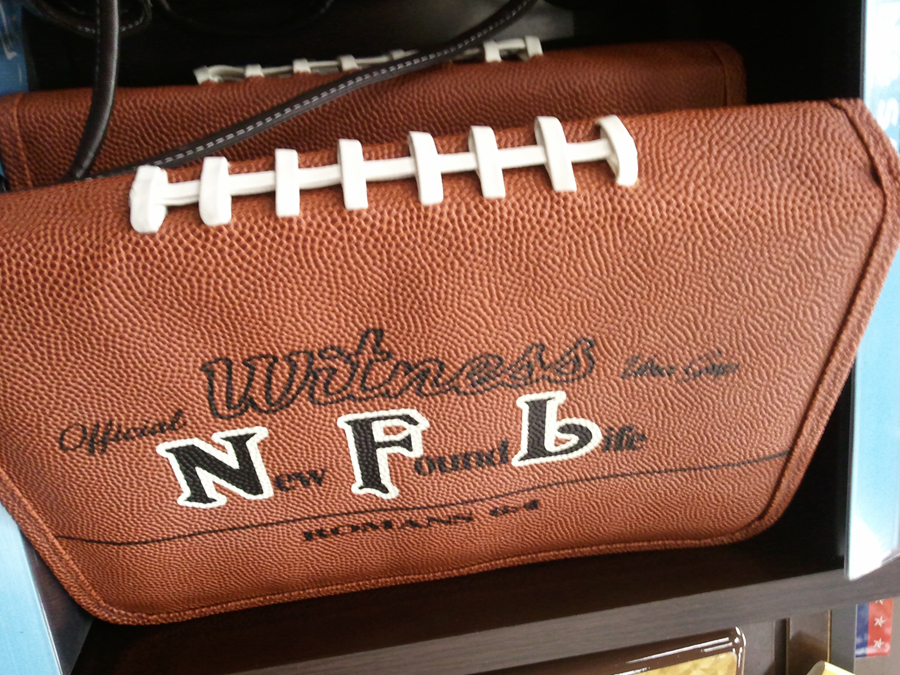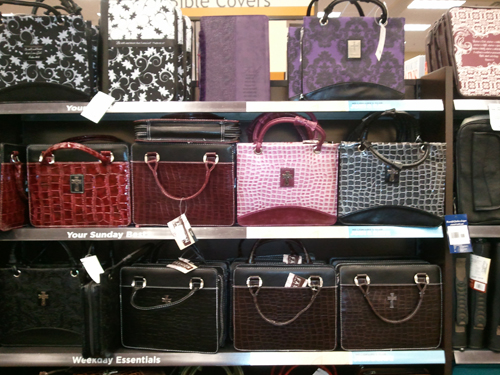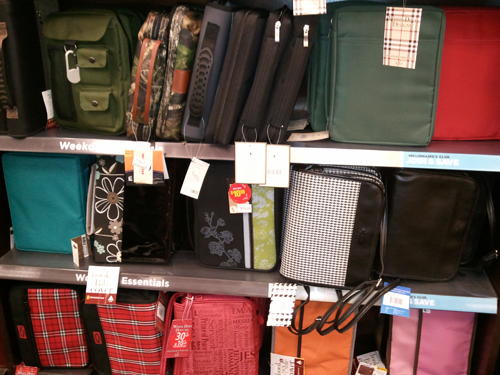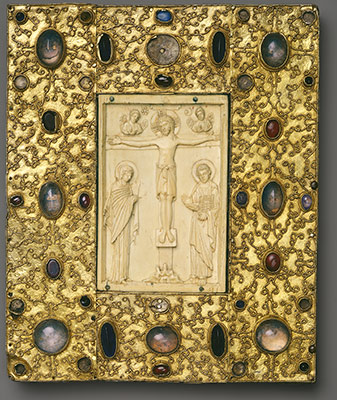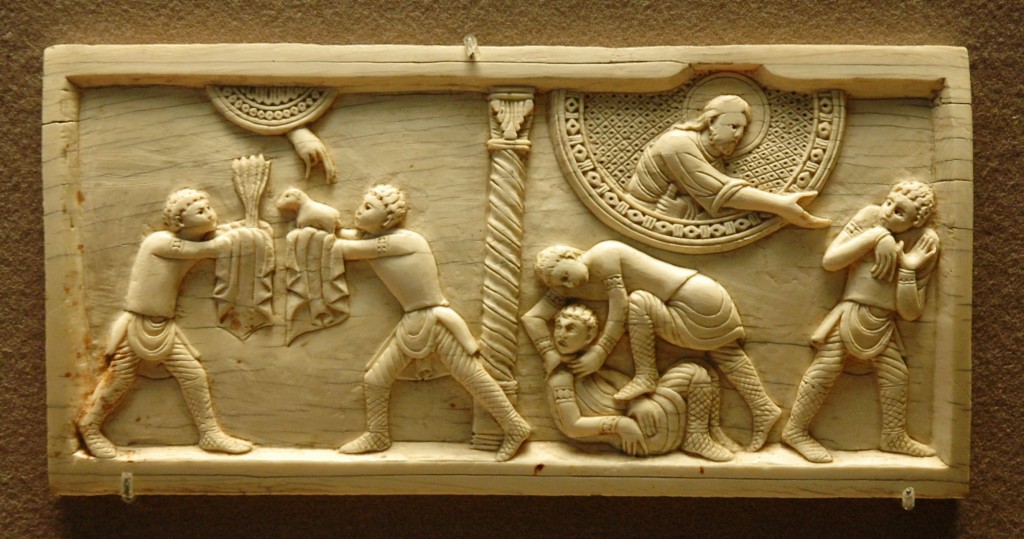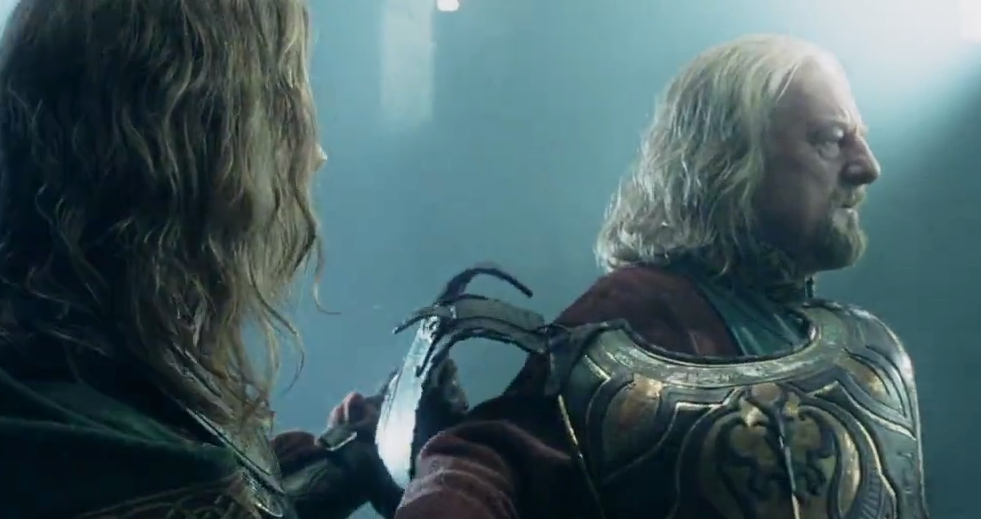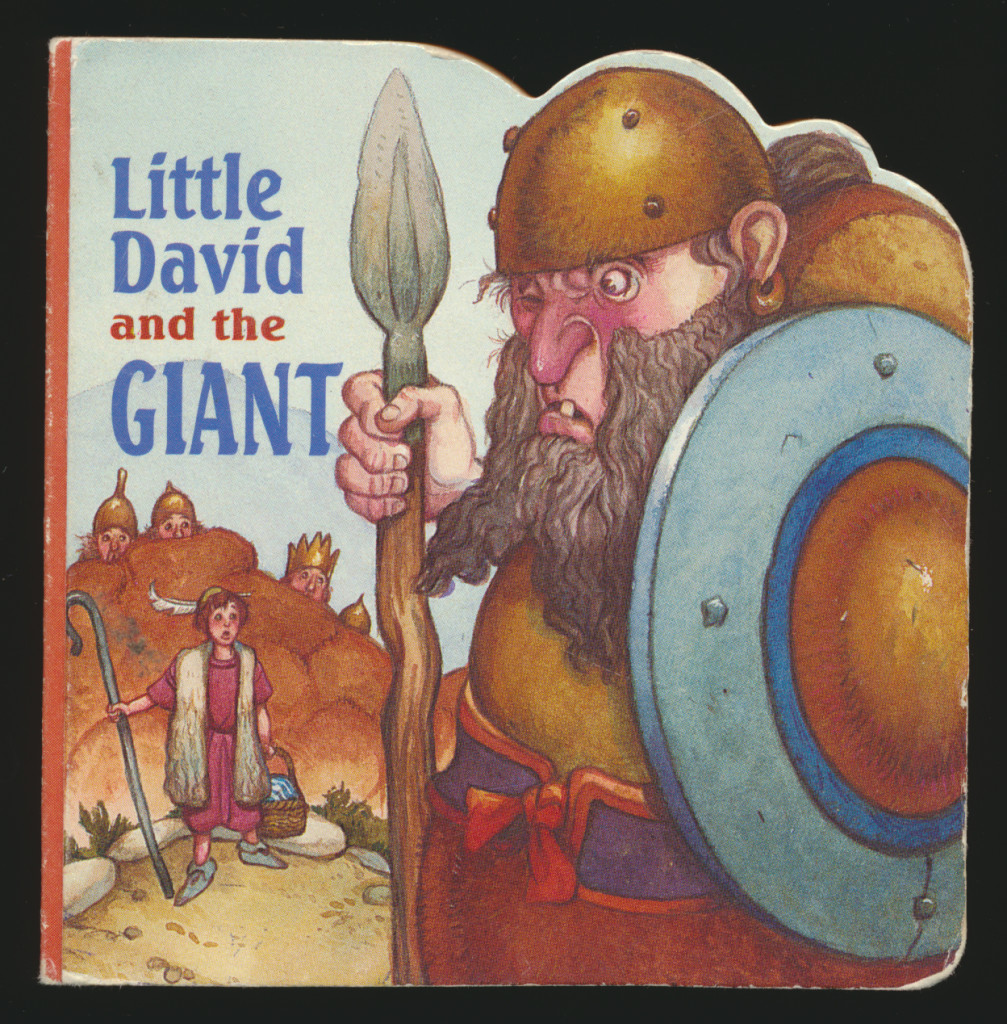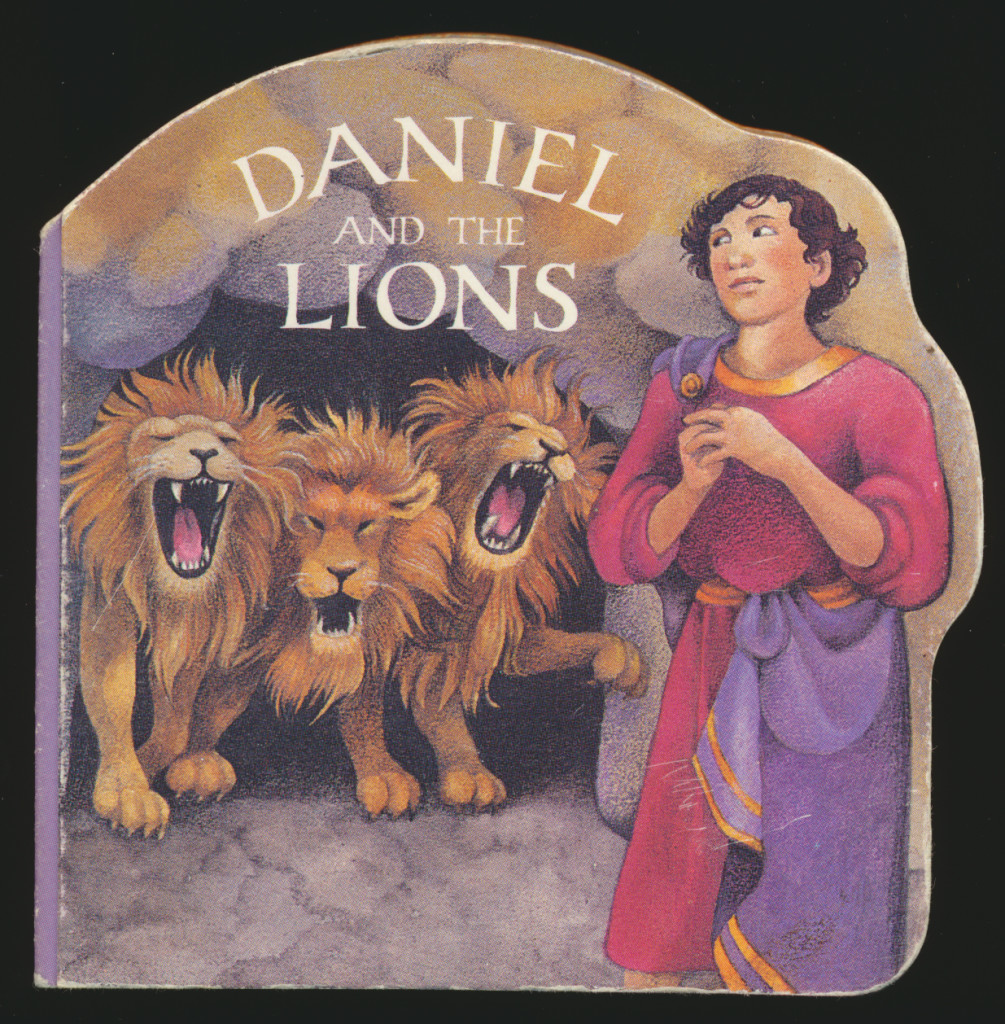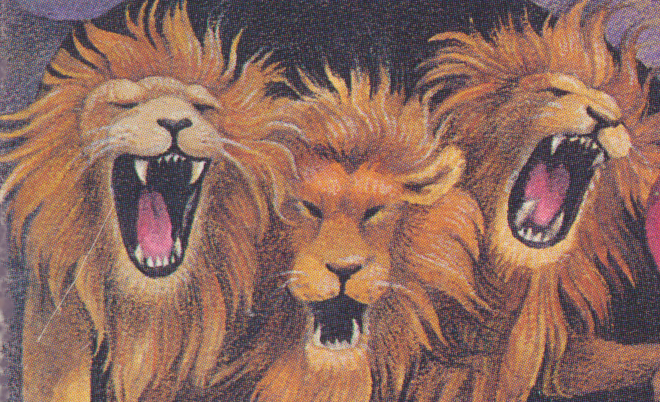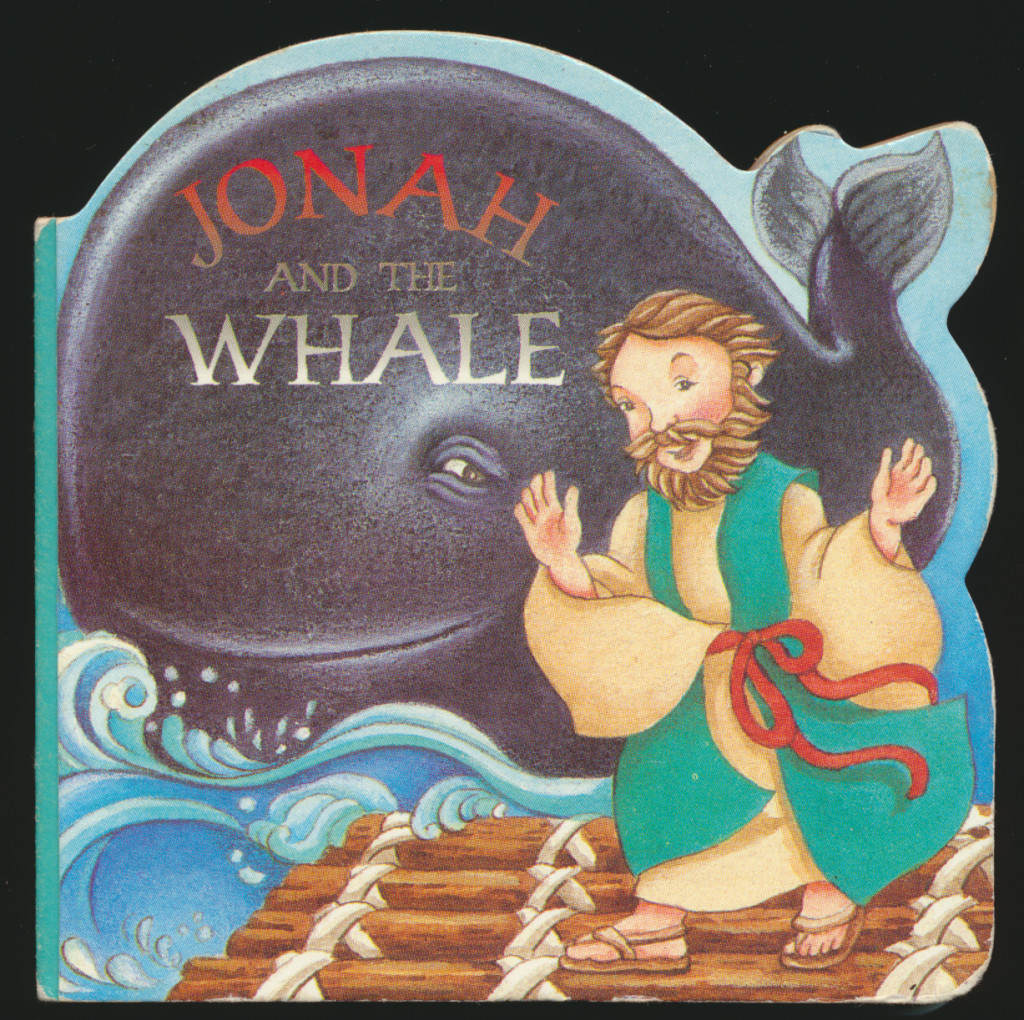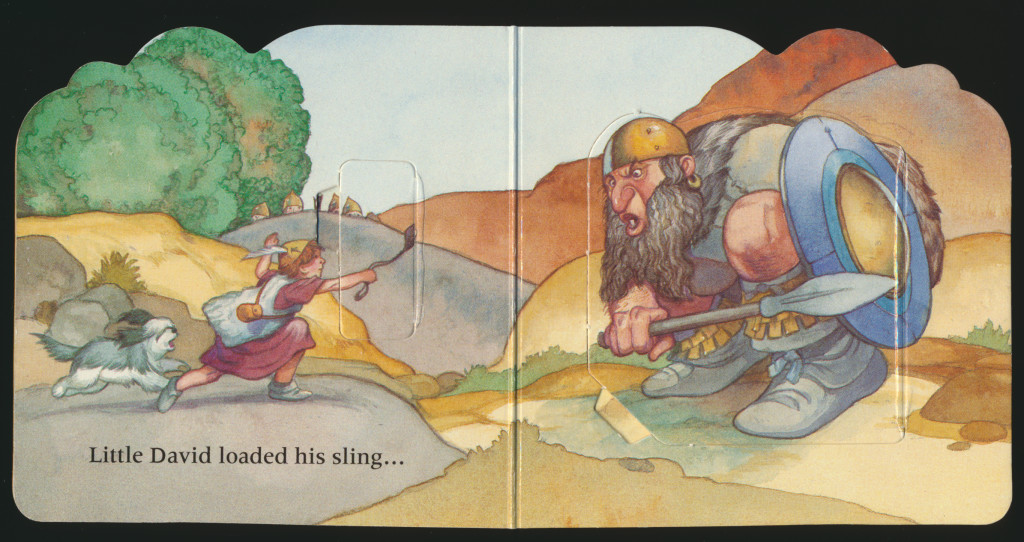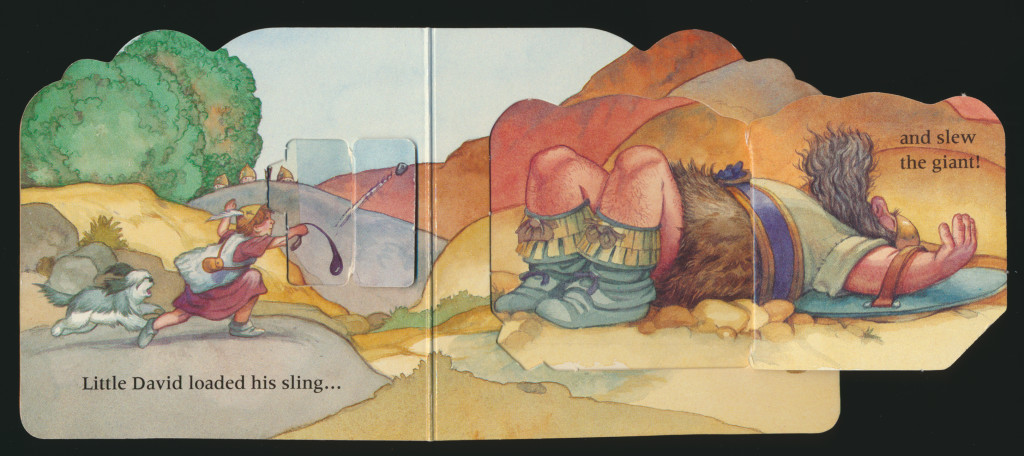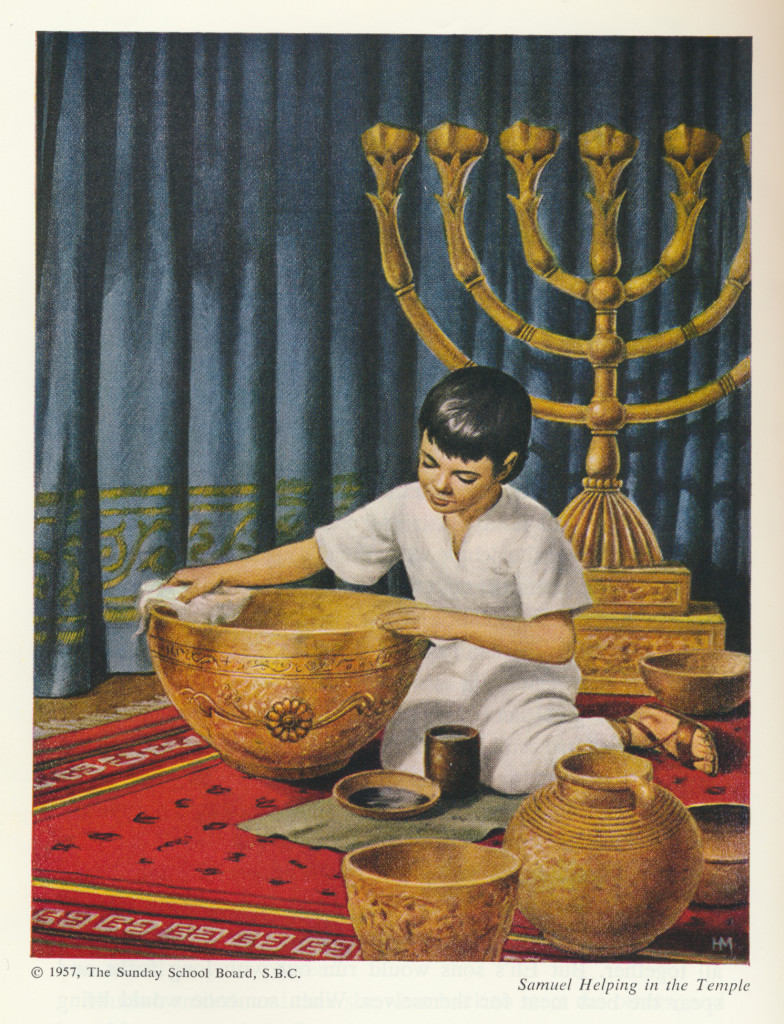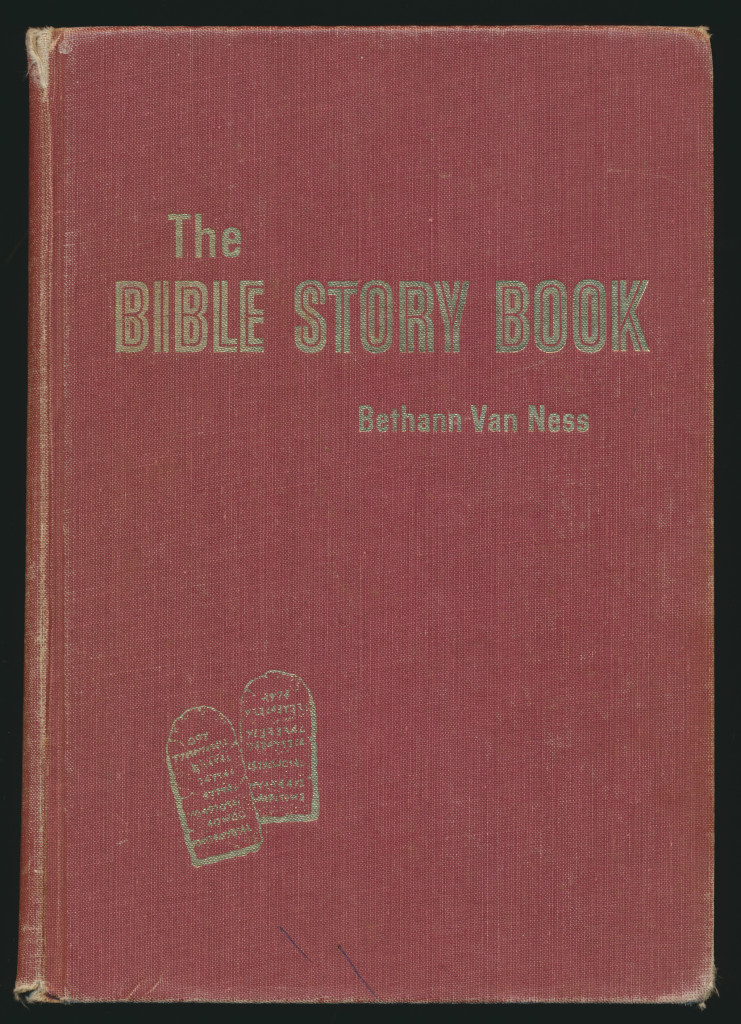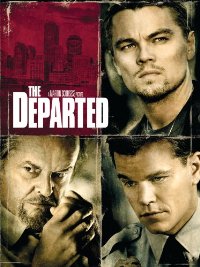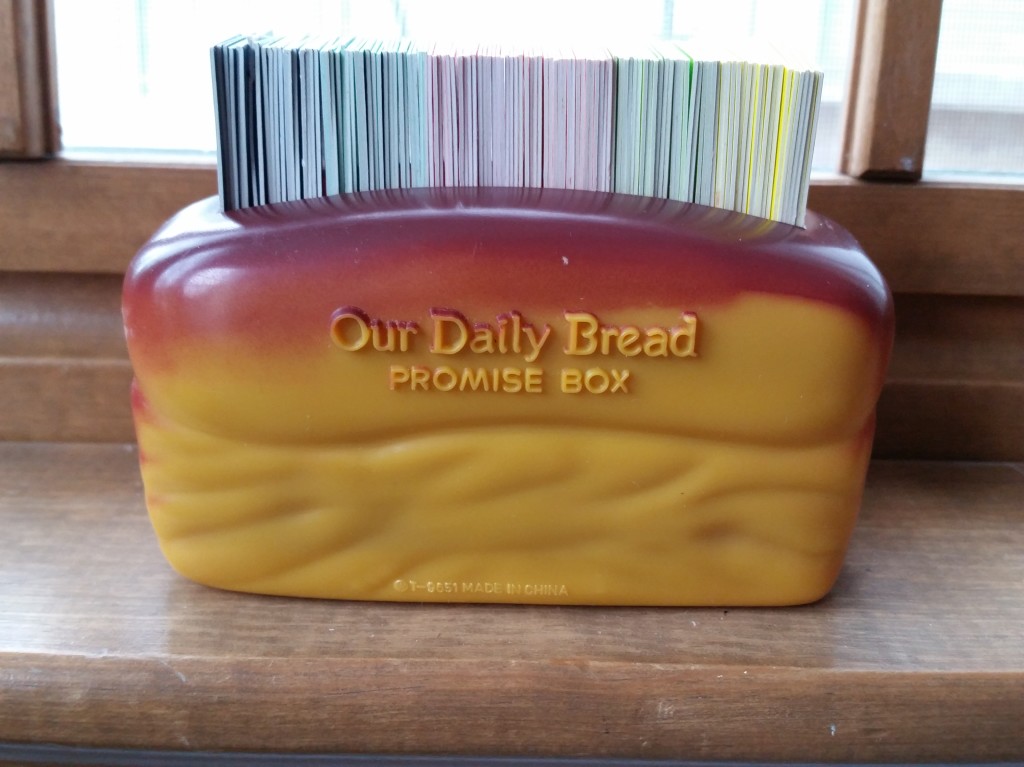
Our Daily Bread
Promise Box
Return thanks. Say your prayers. Read your Bible everyday.
One of our great tasks as faithful people is to be always mindful of God and his promises. We teach them diligently to our children. We talk of them when we sit in our houses and walk by the way, when we lie down and when we rise. We try to establish good spiritual habits, memorize prayers and scripture, learn a few hymns. We want faith to be as natural as breathing.
The Promise Box is one of the tools Christians have developed to aid spiritual growth. The idea is simple: a box filled with cards or slips of paper printed with Bible verses. Each day you draw a different card to read, mark, and inwardly digest. The purpose is serious, but the practice is enjoyable. It’s a bit like opening a fortune cookie or a birthday present: you never know exactly what you’ll get. As you reach for the card you wonder, “What message does God have for me today?”
The Promise Box that’s most familiar to me is a little plastic loaf of bread filled with different colored cards. The box usually has the words “Our Daily Bread” on it, though I have seen pictures of a “Bread of Life” box. The “bread” in the title is a New Testament reference, intended to remind us of Jesus and the Lord’s Prayer.
I remember seeing these loaves in people’s kitchens growing up. We didn’t have one, but to a child, a plastic bread loaf is a wonder to be remembered. The other day, for some unknown reason, I went hunting online, found one for sale (which I bought), and I also found an interesting variation that I’d never seen before. (I bought that one too.) They have become food for thought.
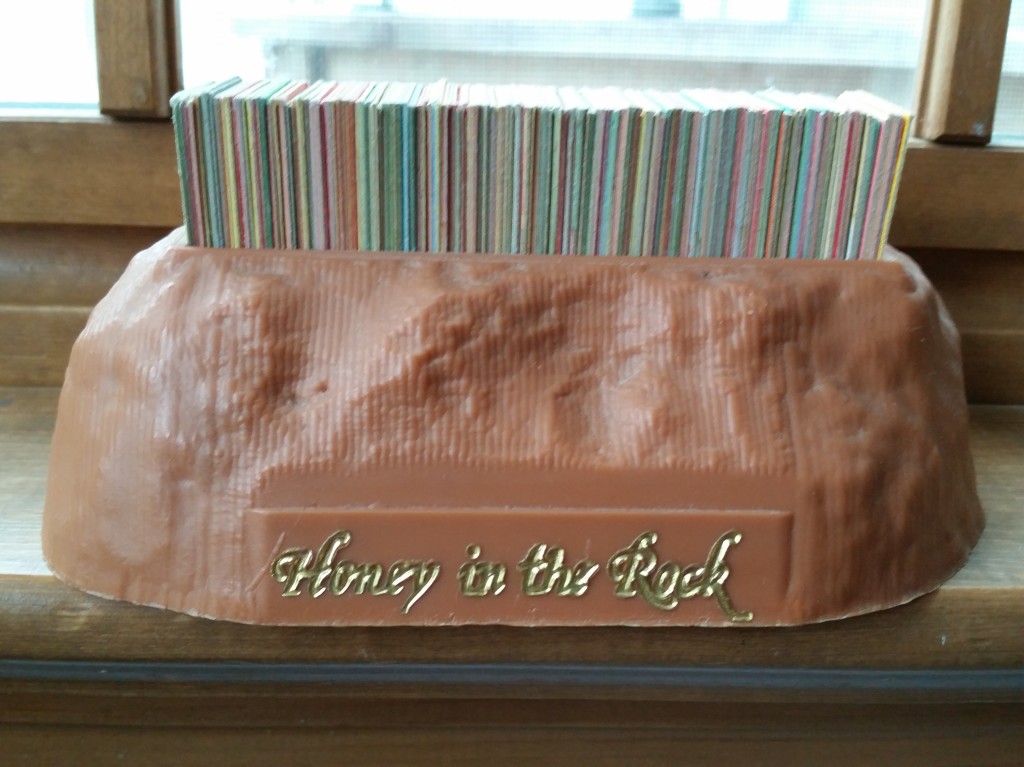
Honey in the Rock
Gospel Text Line
Seymour, Indiana
My second Promise Box is a plastic rock. The phrase “Honey in the Rock” stamped in gold on the side comes from Psalm 81 and Deuteronomy 32–but I believe the sense of it comes from Psalm 119:
How sweet are Your words to my taste! Yes, sweeter than honey to my mouth!
and from Ezekiel 3:
“Son of man, eat this scroll that I give you and fill your stomach with it.” Then I ate it; and it was in my mouth as sweet as honey.
Honey in the Rock has colored cards similar to the Daily Bread, but like the name it’s a bit less austere. The cards are printed with scripture verses on one side and what seem to be hymn lyrics on the other. I don’t recognize many of the hymn lyrics, and their poetry seems old-fashioned, so I suspect they were familiar to a previous generation. (Of course, it could be a reprint of old cards in a new box, the sort of thing that happens when one company buys out another.) My Honey in the Rock was made by the Gospel Text Line Company of Seymour, Indiana (about which I know almost nothing). I’m guessing it dates from the late 1950s or early 1960s.
Now I had a loaf and a rock. My interest was piqued. I realized there was more to the Promise Box than bread alone, so I did what I always do: I went searching online, and I was able to trace the Promise Box as far back as the Victorian era. I’ll be keeping my eyes open for more examples, but let me share what I’ve found so far.
In the 1940s, Zondervan put out a Daily Manna Promise Box. Once again the product name varies, but emphasizes our need for nourishment and God’s promise to supply our needs. Calling to mind Deutronomy 8:1-3 the Zondervan box also links our need to the word of God: “man shall not live by bread alone.” The Daily Manna Promise Box contains the familiar colored cards (which must have been designed to appeal to consumers), here printed with scripture and “choice poems.” The addition of poetry, like the hymns, creates more obviously devotional experience than the simple scripture verse of the Daily Bread. There’s a verse to memorize and a sort of poetic commentary for meditation. Directions for use are included.
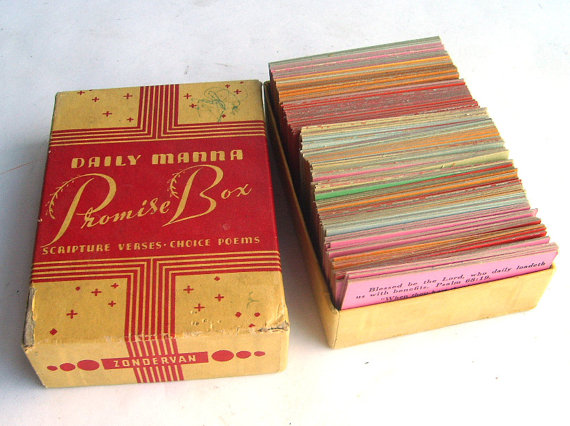
Daily Manna Promise Box
Zondervan, 1940s
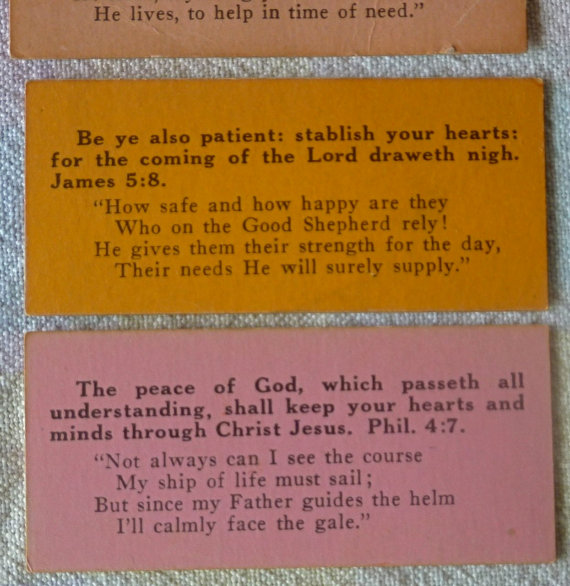
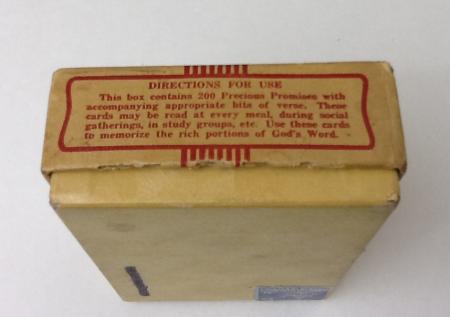
“Directions for use: This box contains 200 Precious Promises with accompanying appropriate bits of verse. These cards may be read at every meal, during social gatherings, in study groups, etc. Use these cards to memorize the rich portions of God’s Word.”
Having made my way to the pre-plastic age, I kept up my online search. The oldest promise box I could find was created by Pickering and Inglis, a Glasgow-based firm, publishing largely for the non conformist church in Scotland with many Brethren publications. These lovely examples come from the early 1900s. They’re called “Golden Grain: Precious Promises Gleaned from the Word of God” and the name reminded me of Jean-François Millet’s Gleaners (1857).
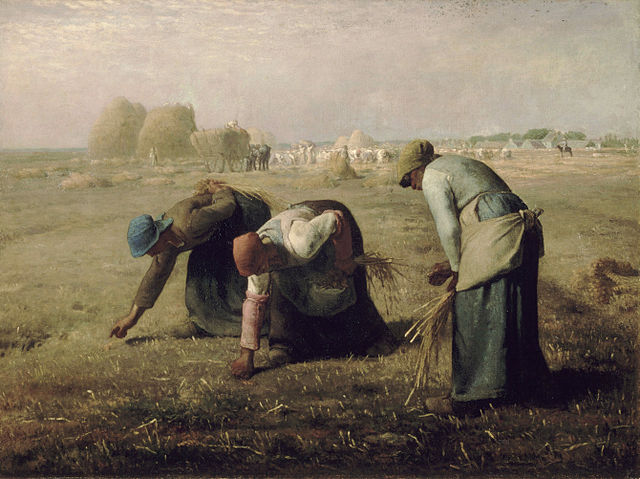
The Golden Grain box was filled with tiny scrolls and came with an instruction card and a delicate pair of tweezers to remove the scrolls.
“Golden Grain Promise Box- A careful selection of Precious Promises from the Word of God for the comfort, cheer and guidance of His Own. Pick out one of the rolls, read and commit to memory the promise, then replace in box. Can be used at morning and evening worship, at any meal table or family gathering, in small Bible Class or Social Company, in Hospital or Infirmary, in private, or in many other ways.”
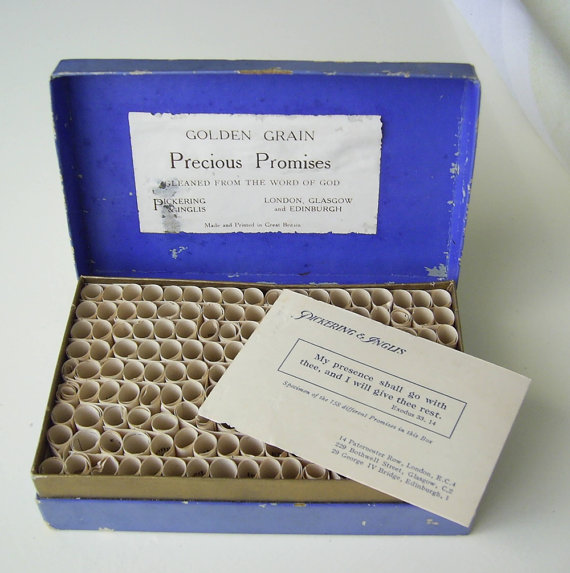
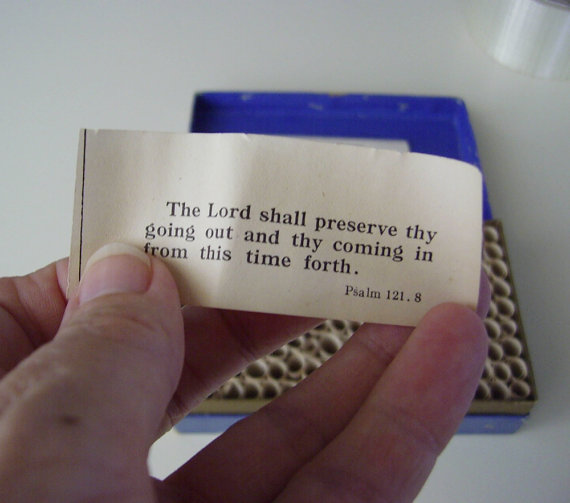
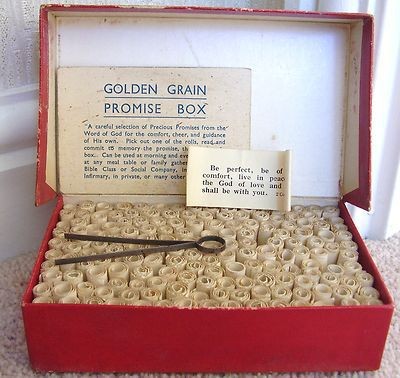
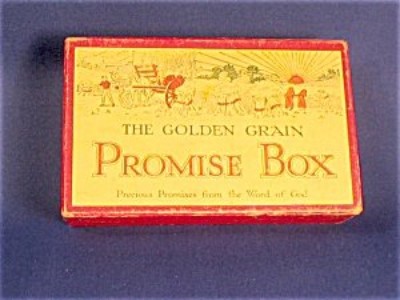
So that’s I’ve learned about the history of the Promise Box, and now you know it too. But why, you may ask, did I lead you down this rabbit hole? Because I’m fascinated by the idea that a bit of Christian whimsy–almost Christian kitsch–has a serious history. An I think it’s worth asking, if a plastic loaf of bread filled with Bible verses is meaningful to someone, what does it mean?
Each of these objects is clearly a Promise Boxes, but they are not the same. “Be nourished by God’s Word” they all say, but some Promise Boxes allow for personal reflection stimulated by human words as well as scripture. Some are a bit silly. All are meant to be enjoyed, and all of them bring religious instruction and devotion into the home, and frequently to the kitchen and to the table where the family gathers.
Like an Advent calendar, the Promise Box is a motivator to mindfulness. Happily, it’s not a box of pills–“take one a day for good spiritual health”–it’s a box of promises, designed to comfort, cheer, and guide us. It has a game-like quality. And it’s a great idea that’s lasted over a hundred years.
Post script: I was musing over lunch about the multicolored cards, and thinking about how only recently had the palette changed to slightly more neon shades. Why had the colors remained so constant over many years? What did they mean? Then, with a characteristic flash of insight, my husband pointed out that the cards were a rainbow and so a reminder to us and to God of his great promise:
I am going to make a solemn promise to you and to everyone who will live after you. This includes the birds and the animals that came out of the boat. I promise every living creature that the earth and those living on it will never again be destroyed by a flood.
The rainbow that I have put in the sky will be my sign to you and to every living creature on earth. It will remind you that I will keep this promise forever. When I send clouds over the earth, and a rainbow appears in the sky, I will remember my promise to you and to all other living creatures. Never again will I let floodwaters destroy all life. When I see the rainbow in the sky, I will always remember the promise that I have made to every living creature. The rainbow will be the sign of that solemn promise.
Genesis 9
